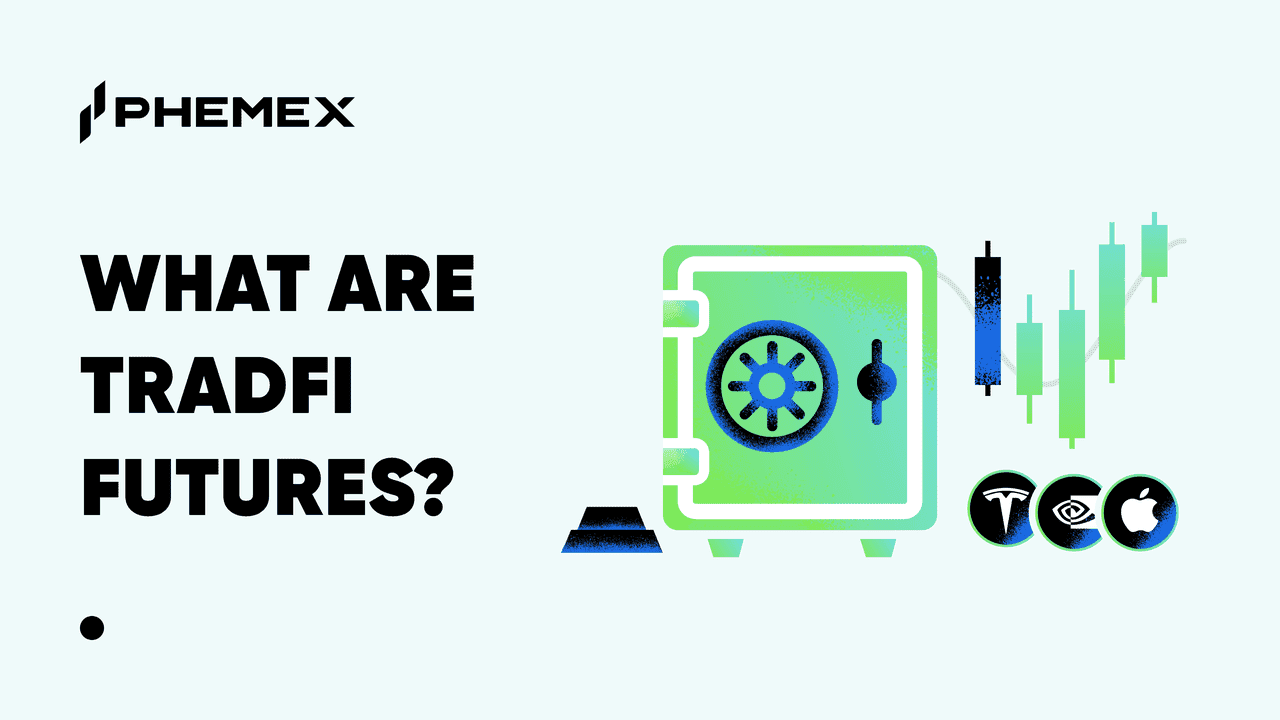What is P2P Trading?
In the ever-evolving realm of cryptocurrencies, Peer-to-Peer (P2P) trading stands out as a decentralized method of exchange, enabling individuals to directly buy and sell cryptocurrencies like Bitcoin and other digital assets. This decentralized form of trading offers a stark contrast to the workings of centralized exchanges (CEXs), bringing a distinctive blend of advantages and challenges. P2P trading allows users to bypass intermediaries typical of CEXs, offering them complete control over their trades, from setting prices to choosing settlement times and trading partners.
A major benefit of P2P trading is its diminished susceptibility to the risks associated with centralized systems and its notably lower transaction fees. By removing the middleman, P2P trading reduces costs and increases efficiency. The proliferation of blockchain technology has significantly contributed to the popularity of P2P trading, providing a secure and transparent medium for direct transactions.
Despite its many advantages, P2P trading does have its risks, particularly due to the lack of an intermediary. This can potentially lead to increased exposure to disputes or fraudulent activities. P2P platforms typically feature less stringent verification processes compared to CEXs, offering enhanced privacy and a wider range of choices in terms of rates and payment methods, tailoring the trading experience to individual preferences.
To address the potential risks inherent in P2P transactions, platforms like Phemex P2P have been developed, bringing a more structured approach to P2P trading. These platforms balance the freedom and autonomy of direct trading with the security measures and oversight characteristic of centralized platforms. As the crypto market continues to grow, P2P trading remains a favored option for traders who seek a more decentralized and interactive approach to trading cryptocurrencies, blending the advantages of autonomy with the security provided by structured platforms.
How does P2P Platform work?
Peer-to-peer trading in the crypto world has revolutionized the landscape of cryptocurrency exchange, introducing a decentralized platform that removes the need for central authority. This innovative system, rooted in P2P protocols, enables users to directly connect and engage in Bitcoin and other crypto transactions without relying on intermediaries, setting it apart from traditional financial systems that depend on banks for transaction facilitation.
In P2P trading, platforms serve as a nexus for buyers and sellers, operating distinctly from centralized systems. They function across multiple servers running the same software, coordinated through smart contracts. These contracts, which are essentially predefined sets of instructions, execute automatically when certain conditions are met, directly facilitating fund transfers between parties. This is a departure from traditional finance where banks control and validate transactions.
The primary advantage of P2P trading is the level of equality and autonomy it provides to each network participant. With equal rights and responsibilities, the integrity of the P2P system is upheld by consensus algorithms that verify transactions and prevent issues like double-spending. Each trader on a P2P platform maintains a copy of the ledger, recording all network transactions, ensuring transparency and security.
Despite its advantages, P2P trading faces challenges, particularly in establishing trust and preventing fraud, as counterparties are often unknown. To address these issues, P2P platforms like Phemex P2P not only facilitate connections between buyers and sellers but also enhance transaction security. They employ escrow services to securely hold crypto assets, such as Bitcoin, until both parties confirm the transaction, significantly reducing the risk of fraud.
In the event of disputes, P2P platforms offer an appeal process with customer support intervention, further securing and enhancing user satisfaction in trades. Operating by pairing buyers and sellers, P2P platforms generally charge a nominal fee for each trade and require users to store funds in a separate digital wallet controlled by the platform, combining security with flexibility. This makes P2P trading an increasingly popular choice among those in the crypto community seeking a more autonomous and secure trading experience.
Types of P2P network
P2P networks play a crucial role not only in the realm of crypto trading but also in various other digital domains, each with its unique features and benefits. A notable form of P2P networks is file-sharing networks, widely recognized and used for sharing a range of files such as videos, music, and books. Torrent sites are a prevalent example, where users connect directly to exchange files between their computers. While these networks have been associated with the illegal downloading of copyrighted materials, they also serve numerous legitimate purposes.
Another significant type of P2P network is telephony or VoIP (Voice over Internet Protocol). These P2P networks enable users to make phone calls without the need for a central server or traditional telephone company, often extending beyond voice calls to include video conferencing and instant messaging features. This expansion of capabilities illustrates the diverse utility of P2P networks in enhancing communication.
Moreover, P2P technology has found extensive use in media streaming services. Platforms like YouTube utilize P2P streaming to efficiently distribute content to users, showcasing the ability of P2P networks to handle large data volumes effectively. The adoption of P2P streaming by various media services highlights the broad applicability and versatility of P2P technology across different digital sectors, beyond just crypto and Bitcoin-related activities.
Trading Strategies of P2P Trading
Arbitrage trading in the crypto world is a strategic approach where traders capitalize on varying cryptocurrency prices across different platforms. This method involves buying crypto at a lower price on one platform and selling it at a higher price on another, allowing traders to profit from discrepancies caused by factors such as market volatility, liquidity, or regional differences. For example, on a platform like Phemex, traders can analyze price differences between spot and P2P markets, identifying opportunities to buy low and sell high.
Another tactic in the P2P realm involves the buying and selling of ads on P2P marketplaces. This strategy empowers traders to set their own prices on these platforms. They can opt for lower prices to attract a larger customer base or higher prices to boost their revenue, tailoring their approach to align with their business goals.
Additionally, a lucrative strategy in P2P trading is to exploit high-demand payment methods. On P2P exchanges, certain payment methods, such as fiat options, can be scarce and, as a result, may carry a premium. Traders can take advantage of this by purchasing widely available cryptocurrencies at market rates and then selling them through less common payment methods. This approach allows traders to capitalize on the willingness of customers to pay more for the convenience of using their preferred payment methods, thereby maximizing their profits in the P2P crypto trading space.
Advantage of P2P
Peer-to-peer (P2P) crypto trading platforms have become a pivotal force in the international crypto market, presenting numerous benefits that attract traders globally. These platforms grant expansive access to a worldwide marketplace, enabling users to engage in buying and selling cryptocurrencies, including Bitcoin, across a broad network of international buyers and sellers. This aspect is particularly crucial in areas where crypto trading is restricted, as P2P platforms operate independently of central regulatory bodies.
A key characteristic of P2P trading is the wide variety of payment methods it offers. The wide selection serves a diverse range of user preferences and requirements, proving especially useful for those lacking access to standard banking services or who prefer direct transactions.
Notably, P2P platforms are recognized for their low trading fees, with some even providing services at no cost, positioning them as a financially appealing alternative to traditional exchanges. Additionally, these platforms bolster transaction security using escrow services to safeguard funds until transaction conditions are fulfilled, complemented by encryption and two-factor authentication for enhanced security.
Beyond financial and security benefits, P2P trading platforms nurture a robust community and customer support system. Users can participate in discussions regarding market trends and acquire insights that positively impact their trading choices. These platforms also offer the flexibility to tailor offers, enabling traders to set their own prices, choose preferred payment methods, and determine transaction volumes—customization options not usually found on centralized exchanges.
The speed of transactions on P2P platforms can vary depending on the chosen payment method but typically surpasses that of conventional exchanges. Furthermore, traders on P2P platforms enjoy the freedom to establish flexible trade orders, granting them greater control over their trading operations. Collectively, these attributes render P2P crypto trading platforms as versatile and user-centric, making them an ideal choice for those engaged in the vibrant and ever-changing cryptocurrency market.
Disadvantage of P2P
In the dynamic world of cryptocurrency, Peer-to-Peer (P2P) trading platforms have their unique benefits and challenges. A common issue in less frequented P2P platforms is the concern of low liquidity, which can result in insufficient buyers or sellers to promptly match trade orders. This situation often extends the wait time for trades to complete and could influence the prices of cryptocurrencies, including Bitcoin. To circumvent this, many opt for more established P2P exchanges with higher user activity.
Slower trading speeds can also be a hurdle in P2P trading. This delay typically occurs when one participant in the transaction takes longer to confirm, contrasting with the quicker, more direct process seen in traditional trading systems. The reliance on both parties' promptness in P2P trading can sometimes introduce delays and uncertainties.
Another significant challenge in P2P trading is the heightened risk of fraud. The decentralized nature of P2P platforms, without a central authority, can lead to an increased risk of deceptive practices, such as the creation of fake profiles or misleading information. Traders navigating P2P platforms must therefore be vigilant, verifying the credibility of potential trading partners and using trusted platforms for their transactions.
Initiating a trade on a P2P cryptocurrency exchange involves choosing an appropriate platform, setting up an account, and depositing the desired crypto for trade. Traders then engage in posting their buying or selling offers and exploring offers from others within the P2P network. Due to the absence of centralized control, it’s essential for users to adopt robust security measures like strong passwords, two-factor authentication, and secure internet connections to safeguard their transactions.
While P2P crypto trading platforms enable traders to create personalized trade orders, offering a degree of control and customization not typically found in traditional exchanges, they also require traders to be mindful of the potential for slower transactions. Traders should be prepared for variability in liquidity and transaction speeds, common characteristics of the decentralized nature of P2P trading, while exploring opportunities for arbitrage and personalized trading experiences within the crypto realm.
Key Feature of choosing P2P Platform
Choosing the best P2P trading platform for your Bitcoin or other crypto transactions involves careful consideration of several vital features. A paramount aspect is a user-friendly interface, which simplifies navigation and enhances the efficiency of trade management. Equally important are robust security protocols, such as multi-factor authentication and encrypted storage, crucial for protecting your data and assets.
When evaluating a P2P platform, it's essential to rigorously assess its reputation to ensure its authenticity and reliability. Compatibility with the cryptocurrencies you aim to trade, like Bitcoin or other cryptos, is another critical factor. Additionally, a diverse range of payment methods should be available on the platform, and it's wise to be aware of any trading fees, as these can differ from one platform to another.
Lastly, having access to dependable and responsive customer support, ideally around the clock, is vital for a seamless P2P trading experience. This support is crucial for resolving any potential issues or answering queries you may have. All these considerations collectively form the foundation of a secure and efficient P2P crypto trading experience.
Read More
- What Is P2P Trading: Buy Crypto With Zero Fees & Wait Time
- What is Social Trading in Crypto & How does it Work?
- How To Trade Crypto: The Ultimate Investing Guide
- Crypto Trading vs. Investing: Key Differences Explained
- What is Cryptocurrency & How It Differs From Digital Cash
- What is Copy Trading: Replicate any Trading Portfolio
- What is Bot Trading in Crypto & How does it Work?
- TradingView: What Is It and How to Use It to Trade with Phemex






